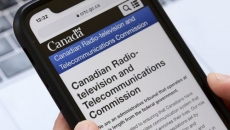Health Minister Mark Holland says he has seen a large jump in the number of dentists who have agreed to provide care under the new dental-care program.
The government began accepting claims for dental services for seniors enrolled in the program in May, and has since expanded eligibility to qualifying children under the age of 18 and people with a disability tax credit.
While some 2.3 million patients have been quick to enrol, getting dentists on board to provide the care has been more challenging.
In just over three months, the Canadian Dental Care Plan is already having a transformational impact on the lives of Canadians by making care more accessible and affordable. 🦷🇨🇦 pic.twitter.com/PbObhYRkGs
— Mark Holland (@markhollandlib) August 7, 2024
As of last month, roughly 11,500 dentists, hygienists and denturists were registered to provide care under the program, which represented less than 50 per cent of dental professionals in Canada.
Dentists appeared more reticent to enrol than other providers, as dental associations across the country expressed concerns about the design of the program and the administrative burden on dentists.
Holland says there are now 16,612 dentists participating, which represents roughly 75 per cent of all dentists and dental specialists in Canada.
"The front door has been blowing off over the last month, with uptake of providers signing up to participate," Holland said in an interview Tuesday afternoon.
On Wednesday morning, Holland was set to hold a press conference at a dental office downtown Ottawa to announce the progress.
He says the increase is probably thanks to a change last month that allowed providers to participate on a claim-by-claim basis rather than registering in advance.
The program was born out of a bargain between the Liberals and the NDP to prevent an early election in exchange for progress on key priorities.
The two parties' goal is to make the coverage available to any uninsured people with a household income under $90,000, with full enrolment eligibility expected in 2025.
Holland said there are some parts of the country where provider participation is lagging, including in Alberta and New Brunswick. The challenge is particularly acute in rural areas, which are already underserved, he said.
If the program is to succeed, the government doesn't just need all current dental-care providers to be ready to sign up.
More professionals will also be needed to serve the nine million or so patients Ottawa expects will be eligible for the program before the end of next year.






